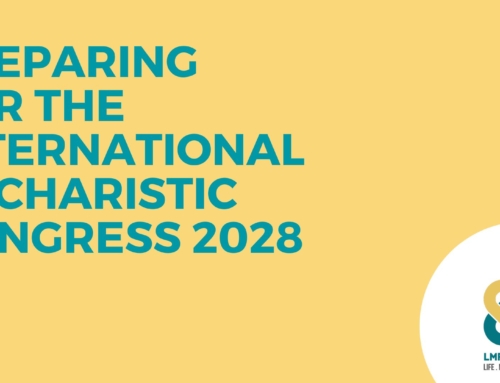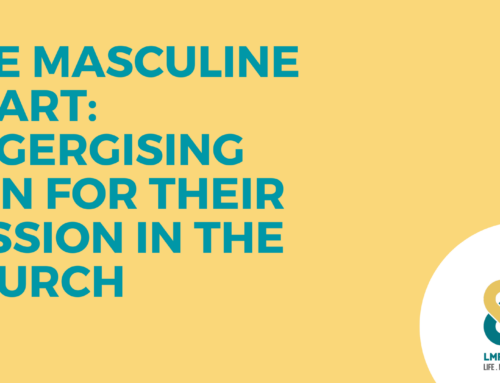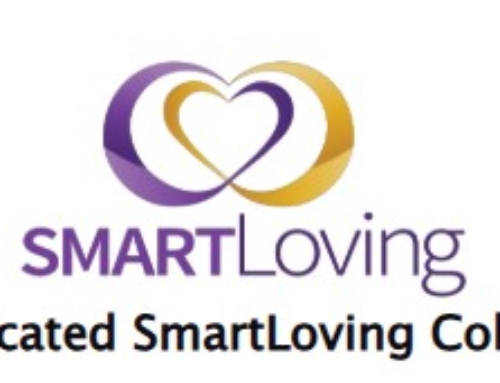
Byron & Francine Pirola
Biography
Francine & Byron Pirola are the cofounders of SmartLoving – a global Catholic marriage formation apostolate that serves over 4000 couples annually. Francine works in a full-time volunteer capacity in support of this mission, and serves on the Senate of ACU. Byron maintains their family through his work as a management consultant with EY Port Jackson Partners for which he is the immediate past Managing Partner. Together and individually, they have launched or participated in numerous initiatives including CathFamily, My Faith Diary, the Antioch Youth Movement, the Raphael Network, and LMF Network. Married in 1988, they have five adult children and four grandchildren.
Abstract: Freedom to consent is a critical consideration in preparing couples for Catholic marriage. With the widespread prevalence of pornography use and its potential for addictiveness, Catholic Marriage Preparation needs to navigate this issue with sensitivity and conviction. Programs need to form couples in an authentic understanding of the Sacrament of Holy Matrimony, pastorally support those impacted by pornography use, and ensure that they are equipped to freely consent to Catholic marriage.
Introduction
Because we have rightly become so concerned with rising divorce rates, Catholic marriage prep courses have, as a generalisation, been principally about reducing the risk of divorce through the teaching of relationships skills. While we don’t have a problem with that – that’s a vitally important agenda – it is not enough.
Without a foundation in a Christian anthropology (i.e. understanding of the human person in relation to God), let alone a Catholic one, such programs are inadequate for the preparation of couples for Catholic marriage.
We have to inspire couples – to attract them – to a radically different way of approaching their marriage – that recognises it as a covenant of love and sacrifice – a relationship that images and makes present God’s unrelenting love for every person. One that invites them into a profound mystery – the mystery of a relational God who is the source of their love and also its destination.
This requires our marriage prep courses to be both inviting and challenging; we need to call couples into a countercultural lifestyle – one that actively resists the pull of a toxic, pornified culture.
When it comes to dealing with the challenges, one topic that is overlooked is the impact of pornography in marriage relationships.
Use of pornography is now endemic. It is encountered, by both boys and girls at a young age, and its usage has become increasingly normative; not just among men, not just amongst singles, and not just among the non-practicing or areligious. Being a person of faith does not protect one from sexual addiction.
For several decades now, most couples entering Catholic Marriage (though not all) were cohabitating and/or sexually active. Today, we must also assume that one or both are impacted by pornography use in one or more of its various forms, and possibly addicted.
And unless we think this is all a bit too hard, we only need to take note of what Pope Francis said last week when he referred to pornography as “the language of the Devil”.
A quality Catholic Marriage Preparation course will address this head-on rather than simply bypassing it and therefore implicitly condoning it. Failing to do so means we are not properly equipping our couples to enter fully into Catholic marriage, and possibly enabling them to enter marriage invalidly. For if either fiancé is addicted (to porn, alcohol, drugs etc), their free will is impaired and they are unable to freely consent to entering into Catholic Marriage, or indeed any religious vocation.
Consent
Consent in Catholic marriage (or any vocation) is more than just standing up and saying the words in front of friends and family. One has to be free to consent and addictions, mental illness, immaturity, all can render a person incapable in this regard.
To illustrate, following discussion with Fr Julian Wellspring, the NSW regional Judicial Vicar, we thought it useful just to share some practical considerations in relation to pornography as it pertains to being able to enter into a valid marriage. Because one of the key things the tribunal looks at in an annulment case is whether both parties were able and gave full and free consent on their wedding day. Pornography use can give rise to issues pertaining to consent and therefore the validity of the marriage in three ways:
- Addiction. For a person who is addicted there are serious questions as to their freedom to marry and to assume the essential requirements of marriage. This includes their capacity to be sexually faithful, but also more generally, their ability to be a responsible and responsive partner to their spouse in their everyday life.
- Conditional consent. Some couples with known issues between them, enter into marriage with conditional consent – “I will marry you on the understanding you will not …continue to use porn”. Conditional consent is inherently inconsistent with the intention of the marriage vows and raises serious questions about the validity of the marriage.
- Informed consent. Serious usage of pornography or addiction of any kind by one that is undisclosed or actively kept secret from the other, undermines the freedom of the partner to make a fully informed consent to the marriage.
It should be noted that an addiction or mental illness that develops later, after the wedding, does not retroactively negate a person’s consent – that’s just the ‘for better for worse’ part of the vows. However, this does not mean that a spouse is expected to stay in a dangerous or abusive situation. Valid marriages break down as well as invalid ones.
Implications for Marriage Preparation
In addressing any issue in marriage prep that may cause an individual to be uncomfortable with current or past lifestyle choices or expectations, we need to walk a careful line: being clear and informative about important knowledge that they may not have heard before (whether it is Church teaching or something else), while at the same time being engaging and pastoral; reflecting the reality that God offers infinite mercy
Issues that fall into this broad category include premarital sex and family planning. To this we now need to add pornography. But it’s not just these ‘hot button’ issues. It’s also the sexual trauma associated with living in a pornified world. It’s not just porn use that damages our capacity for healthy marriage. It’s also the trauma of toxic social media feeds, of hypersexualised movies and fan fiction, of teenage sexual taunting, of sexting images being shared without consent, of hookup culture and S&M relationships, of broken hearts and rejection from multiple intimate partners – and that’s before we get to experiences of sexual assault, abuse or the trauma of family dysfunction and breakdown.
The issue is so much wider than isolated ‘hot button’ topics. Therefore we think it is better to be thinking in terms sexual disintegration – or even better in the positive – sexual integrity – the idea that human flourishing requires that our sexual powers be fully aligned and empowered according to God’s design.
None of us present for marriage as pristine specimens. Wounds and trauma are part of every human life. This generation is growing up in a world that is saturated in toxic attitudes. Even those raised in families where parents have been diligent in protecting their children, will still encounter people and be in relationship with others who are deeply wounded and will be impacted by those interactions.
The good news is, marriage, as a covenant of love, is one of the best healing environments most of us will encounter. Marriage, according to God’s plan, is therapeutic for the spouses. The consistent attention, affection and validation provided by a loving spouse is profoundly healing.
Even when the immediate trigger is something done or said by the other, an emotionally mature and securely attached spouse will be able to stand in the space of relational whirlwind providing the attention, affection and validation that is like a healing balm on their spouse’s wounded heart. Byron has done that for me many times -and I am deeply grateful.
But when both husband and wife are severely traumatised and un-integrated they are not going to be able to do this for each other. They will instead, retraumatise each other and their children. For some, the relationship will break under the weight of their unresolved trauma, perpetuating and exacerbating the intergenerational wounding.
Moreover, they will not be able to witness to the glory of God’s mystery inscribed in the marital embrace. Even if their marriage remains intact, their capacity to be an effective sacramental witness will be impaired. A priest who called during the week to encourage us in this initiative believes that pornography is the single largest obstacle to evangelisation. This is not just about human suffering and misery, it’s also a spiritual battle for souls. That’s why Pope Francis is naming the language of the devil because it is corrupting the minds and hearts of God’s beloved children.
A proposed response
When couples present seeking Catholic marriage, they are usually fully focused on the wedding day. They’re not entertaining doubts or questions about whether they should marry or are ready to marry. The decision is made, and their heads are full of wedding planning.
It’s an uncommon couple who views the obligatory marriage prep course with enthusiasm. And many really do not want to be confronted with issues that might destabilise their relationship or sidetrack them from the wedding.
Catholic marriage preparation courses cannot afford to be weak on these issues – we must address them with seriousness and be effective when we do.
Drawing on more than a three decades of experience in our SmartLoving courses, which is now used in preparing more than half the Catholic marriages in Australia and as many again oversees, we propose three essential elements a quality marriage preparation course should have in terms of dealing with pornography:
- Firstly, because it is a ‘tough topic’ the presence of pornography usage needs to be raised, but in doing so it must be done in the context of a positive vision of the fullness of human sexuality as God designed it. We need to establish a vision for the integration of our human desires and sexual faculties in a way that attracts engaged couples, inspires and motivates them to be all that God created them to be before the tough topics are broached.
- Secondly, issue identification of pornography use (or other tough topics) needs to be explicit and done in conjunction with a framework for safely addressing it. For example, in the SmartLoving Engaged course we have a unit called ‘Marriage Saboteurs’. Before we get them to examine a long list of potential issues that can sabotage their marriage, we teach a too we call “the Respectful Request”. This provides a way to express concerns or disclose any issues, and a framework for having a fruitful conversation about it.
- Finally, and importantly, we need to ensure our courses can provide access to support outside the course itself. There is a limit to what a marriage preparation course can directly address in its educative modality, particularly in group formats. However, this, like other topics covered, can sometimes create the impetus for participants to seek therapeutic assistance, perhaps in conjunction with delaying the wedding. This is a positive outcome and requires course providers to have referral network of specialist support readily available.
As a part of the course, we incorporate ‘deep dive topics’ that pick up on topics covered in the course, but which could be courses in their own right. The best example of this is the topic of fertility management, which has a taster in the Engaged course, but has a full instruction course for those seeking to learn a fertility awareness method. Increasingly, we are getting requests for more detailed instruction, which will necessitate additional specialist micro-courses or extension activities.
Our design model is to provide the complete richness available to the couple, but not necessarily require uniform uptake. This allows the course to be tailored to individual couples or diocesan requirements and is enabled by the flexibility of on-demand. We call it ‘centrally enabled, locally delivered’.
Concluding comments
Catholics have a natural right to marry in the Church as long as they fulfil Church and state pre-conditions, and we are there to assist them. In the preparation process, our primary responsibility is to arm the couples with an understanding of how to build a loving and sacramental life together. That is our goal.
Of course everyone comes to marriage in an imperfect state and are incompletely informed of the issues that are likely to undermine their goal. Our role as marriage formators is not to judge a couple’s preparedness to marry. None-the-less, if we have concerns when working with a couple, we have a responsibility to raise this issue with them or with their celebrant.
Cultural normalisation of pornography is now a serious issue faced by many couples entering marriage. Unchecked, use of pornography is rarely stable, it usually progresses. Or to quote Fr Julian Wellspring:
“Normalisation of pornography is incompatible with the Catholic understanding of the dignity of the human person, yet alone Catholic Marriage. When the use of pornography is normalised in the relationship, the relationship is already in crisis.”





